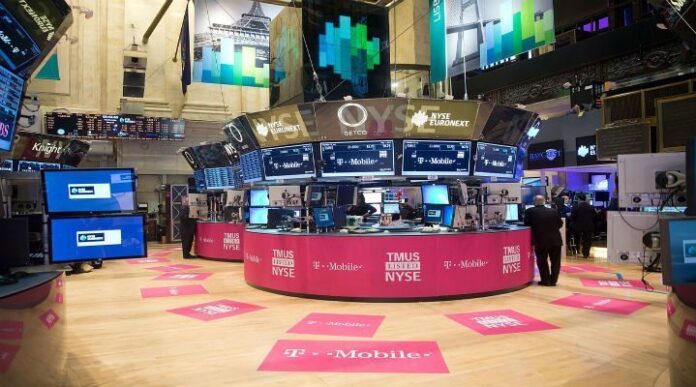German telecom giant Deutsche Telekom is reportedly still looking to offload its U.S. operations, though reports indicate that the company is looking for a specific price.
Bloomberg reports that DT’s management recently met to discuss the future of T-Mobile US, with discussions coming away with a targeted price of at least $35 per share. That amount is just slightly more than the $33 per share amount offered up by French operator Iliad earlier this month, which was rejected by DT. T-Mobile US (TMUS) has been trading around $30 per share in recent weeks.
Iliad has reportedly been in talks with Google and Microsoft about potentially going in on a bid for T-Mobile US.
The dismissal of Iliad’s bid was before rumored suitor Sprint — funded by parent company Softbank — replaced long-time CEO Dan Hesse with former Brightstar founder and CEO Marcello Claure and stated that it was not currently interested in making a formal bid for T-Mobile US. Sprint had been rumored to have agreed to a $40 per share bid for T-Mobile US, though no official offer was made.
DT managed to shed some of its interest in T-Mobile US following T-Mobile US’ acquisition of MetroPCS, which through the convoluted structure of the deal cut DT’s interest in T-Mobile US to around 75%. DT had originally gained control of its U.S. operations in 2001, in a deal originally valued at nearly $50 billion. DT nearly shed T-Mobile US in 2011 for $39 billion in a deal with AT&T that was eventually scuttled by regulators.
Over the past several quarters, T-Mobile US has been one of the fastest growing domestic wireless operators, often out-gaining its larger rivals in customer growth. The carrier most recently announced second quarter financial results that also included improved financial metrics, including a 15% year-over-year increase in total revenues to nearly $7.2 billion for the second quarter. Net income also turned around, improving from a loss of $16 million last year to a return of $391 million this year.
Bored? Why not follow me on Twitter?</em

Report: T-Mobile US back up for bid, beginning at $35 per share
ABOUT AUTHOR
